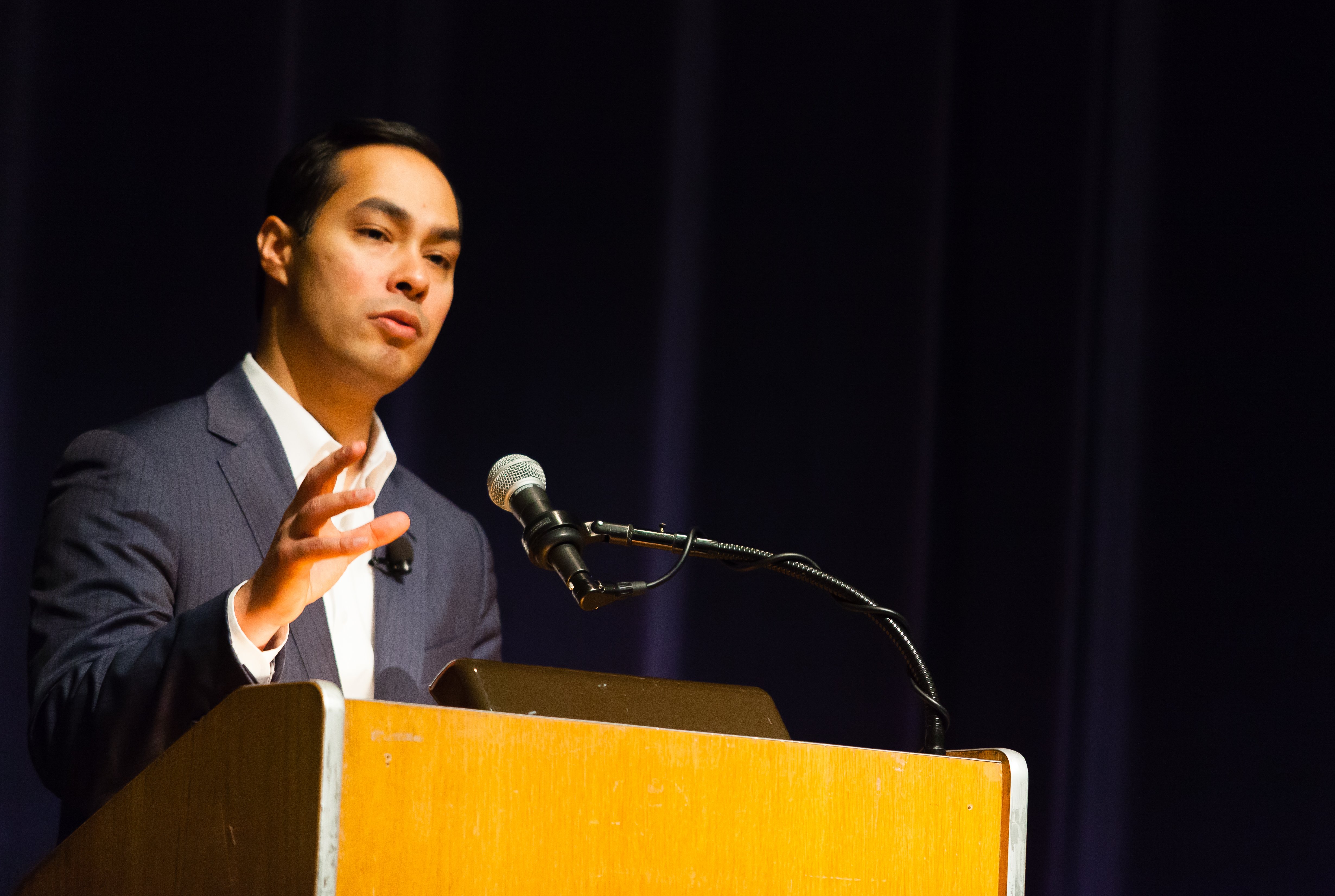Julián Castro ’96 is keeping his options open.
The former 2020 presidential candidate, secretary of housing and urban development and mayor of San Antonio told a Zoom call of students and alumni that he doesn’t know if he’s going to run for office again: “I may, I’m open to it,” he said, “but right now there’s nothing that I’m aiming for.”
What he does know, though, is that he plans to continue in public service — “to continue to work toward making the vision that we articulated in the campaign” — and that he wants other Stanford students and alumni to do the same.
Castro joined Jeff Raikes ’80 and Amanda Renteria ’97 to offer advice and tell stories from their distinguished careers in public service in an event on Wednesday co-sponsored by the Student Alumni Council and the Stanford Alumni Association.
Raikes — who currently chairs Stanford’s Board of Trustees and is a former CEO of the Bill and Melinda Gates Foundation and president of Microsoft’s Business Division — co-founded the Raikes Foundation with his wife, Tricia. The foundation “work[s] toward a just and inclusive society where all young people have the support they need to reach their full potential,” according to its website.
Renteria began her career in the financial industry but has spent the majority of it in public service: most notably as chief of operations at the California Department of Justice, as national political director for Hillary Clinton’s 2016 campaign and as the first Latina chief of staff in the U.S. Senate. Renteria also ran unsuccessfully for Congress in 2014 and for governor of California in 2018. Currently, she serves as CEO of Code for America, a nonprofit working to improve government services.
None of the three knew they were headed for careers in public service when they arrived at Stanford. Castro grew up in a political household, but his upbringing left him cynical about the potential of politics to effect change. At Stanford, he changed his mind, emerging with a passion to give back to his hometown, San Antonio.
Renteria took a job at Goldman Sachs before deciding that she wanted a more meaningful career. She then spent a year as a teacher, which she considers her first public service job.
“I had chosen a career dedicated to try and figure out how to serve others at scale,” she said.
All three panelists advised students to use their Stanford experiences to gain both breadth and depth: to take advantage of opportunities like study abroad programs while still gaining expertise in specific fields and strengthening their communication skills.
“Sometimes, we talk about T-shaped students with depth and some breadth,” Raikes said. “I actually like to think of pi-shaped students … where you have a couple of areas of depth and then breadth.”
Once out of college, Castro and Renteria said, there would be plenty of opportunities to help alumni looking to run for office. Castro named Run for Something, a progressive organization that offers tools and resources to young candidates campaigning for down-ballot office. Renteria also noted that organizations exist to help individuals from specific backgrounds run for office, including women and veterans.
Above all, the panelists said, don’t give up. In response to an alumnus’ question, all three named a time that they had failed and kept going. Raikes described his first-year calculus class, where he failed his first midterm while competing against students who had come from stronger math backgrounds — and came back to crush the class average on the next one.
Renteria remembered her 2014 Congressional campaign, where she and her team realized they wouldn’t be able to win but dedicated themselves to using their platform for “chang[ing] the idea of leadership, so that maybe the next person who runs can win.”
And Castro reached back not to his presidential run but to his first, unsuccessful campaign for mayor of San Antonio.
“It made me have to face whether I cared enough and I had a passion enough about that — about improving things, changing things, dedicating myself to public service as a means to improve the lives of people in my community,” Castro said. “Did I care about that enough to risk failure again, if I ran again? At that point, I decided to go immediately into just practicing law, but four years later I ran again for mayor, and I won.”
Contact Erin Woo at erinkwoo ‘at’ stanford.edu.
